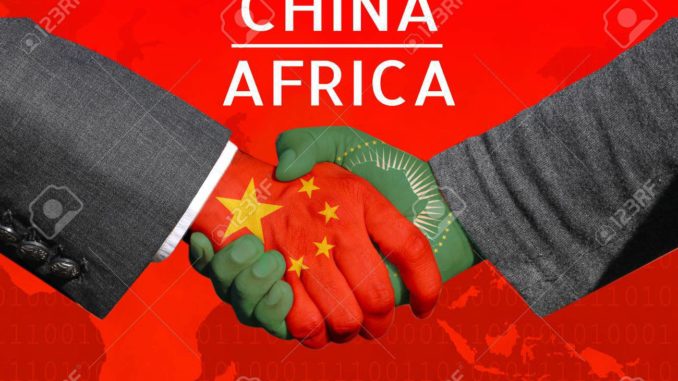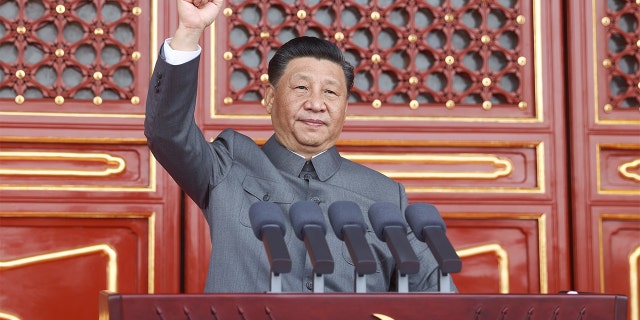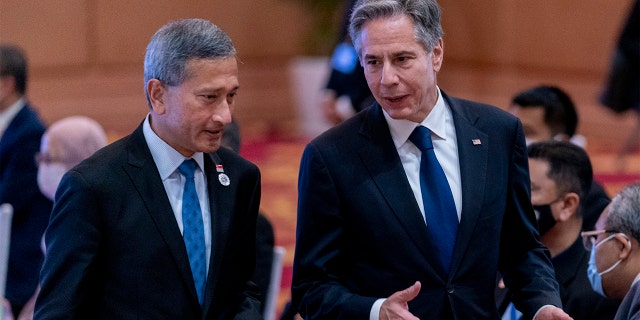
Secretary of State Blinken’s recent trip to Africa — ostensibly to counter China’s influence and promote free trade — gave the distinct impression of the barn door closing. Mind you, not only after the horse has bolted, but has run into your neighbor’s pasture, and set up a good business, collecting stud fees.
Sadly, this belated Blinken effort represents more an admission of failure than a promise of success.
But before Biden-bashers bemoan yet another policy failing, it should be noted that neither party has presented a coherent vision for Africa and its 1.2 billion people.
US BUYING UKRAINE GRAIN SHIPMENTS FOR AFRICAN REGIONS ON BRINK OF STARVATION, UN SAYS
For almost a generation, Beijing has had a clear-eyed view of Africa. It sees Africa as a vast storehouse of raw materials. Materials required to feed an insatiable Chinese economy. A mercantilist economy driven by state-to-state transactions.

U.S. Secretary of State Antony Blinken boards his plane ahead of a trip to Cambodia, Philippians, South Africa, Congo, and Rwanda at Andrews Air Force Base, U.S., August 2, 2022. (Andrew Harnik/Pool via Reuters)
I have seen the results firsthand. I have lived and traveled across Africa during the rise of China and seen how China has built bridges, roads (many to nowhere) and airports based largely on government-to-government exchange in return for access to Africa’s natural resources. And, sadly, in many instances, eroding the rule of law.
While I was on a recent commercial flight within Africa the passengers were predominantly Chinese. I happened to be sitting next to a government minister from the country we were heading to. When we landed, she was none too pleased to learn of what appeared to be a Chinese military delegation welcoming the flight to greet what seemed—unbeknownst to her— like high ranking Chinese officials who were onboard.
PUTIN TO ATTEND WAR GAMES WITH CHINA AND OTHER ALLIED NATIONS, EXPERT WARNS OF ‘DANGEROUS’ TIME
Yet despite the fact that the Chinese mercantilist model has clearly reaped much resentment across Africa, China’s continent-wide extractive policy continues.
For almost a generation, Beijing has had a clear-eyed view of Africa. It sees Africa as a vast storehouse of raw materials. Materials required to feed an insatiable Chinese economy.
By contrast, U.S. policy is marked by various ad hoc programs and a wealth of good intentions. Programs that range from the Bush administration’s $100 billion President’s Emergency Plan for AIDS Relief (PEPFAR) which has made significant strides in combating debilitating diseases such as HIV / AIDS while saving more than 20 million lives— to the Clinton administration’s African Growth and Opportunity Act (AGOA) to assist African countries promote a positive balance of trade for its participants.
COMMUNIST CHINA IS THE BIGGEST THREAT FACING OUR COUNTRY AND BIDEN IS ASLEEP AT THE WHEEL
But what the U.S. lacks is a cohesive policy that views a multi-faceted Africa as a strategic whole.

Xi Jinping, general secretary of the Communist Party of China CPC Central Committee, Chinese president and chairman of the Central Military Commission, delivers an important speech at a ceremony marking the 100th anniversary of the founding of the CPC in Beijing, capital of China, July 1, 2021. (Ju Peng/Xinhua via Getty Images)
A U.S. policy framework that focuses on mutually beneficial commercially driven trade across the African continent would help launch Africa on the path taken when trade-based development lifted much of Asia out of crushing poverty in the 1950s and 1960s.
This new U.S. Africa policy should be “mutually beneficial” because nothing lasts long that isn’t and “commercially driven” because we have seen the limits of counting on autocrats and politicians to promote real shared growth.

Singapore Foreign Minister Vivian Balakrishnan, left, speaks with Secretary of State Antony Blinken, right, during a U.S. ministerial meeting at the Sokha Hotel in Phnom Penh, Cambodia, Thursday, Aug. 4, 2022. (AP Photo/Andrew Harnik, Pool)
Dividends of this new U.S.-Africa policy would include jobs and manufacturing growth in the U.S. and concurrent growth in African jobs and African manufacturing. This would carry the strategic benefit of fostering an already burgeoning African middle class. But the policy also would offer a critical byproduct: of U.S. influence in institutions critical to Africa’s future, such as the United Nations, African Union and the Southern African Development Community.
Additionally, an African continent trade-based development framework would amplify the U.S. voice in the chambers that shape critical African issues such as human rights, transitional government structures, representative democracy and public health.
Could another policy be more in the interest of the United States?
END

Be the first to comment